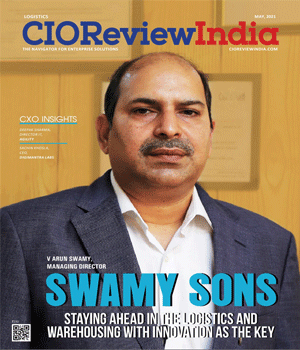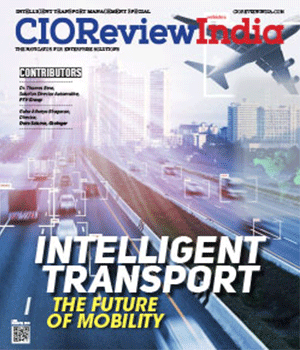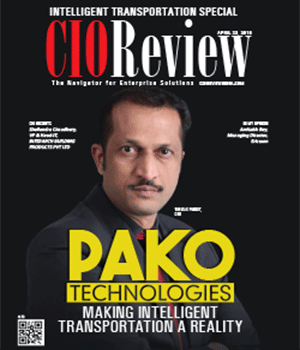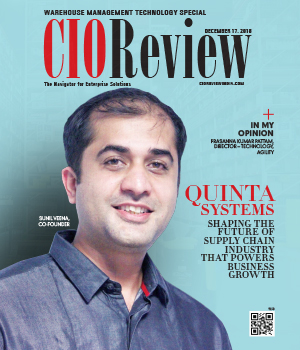
Technically Speaking
Rubal Jain, MD, Safexpress | Thursday, 19 October 2017, 09:58 IST
 That technology is imperative to businesses is a given. Emerging technologies, however, are set to take it to a whole new level.
That technology is imperative to businesses is a given. Emerging technologies, however, are set to take it to a whole new level.
Until some years ago, it was technology that would have to comply with company strategy and targets. Now, it is the other way round. How else do you explain companies choosing to release their advertising campaigns via digital channels and social media as opposed to print and TV ads, which is how it was less than a decade ago? It isn’t just about advertising and marketing, however. Technology has changed the way we shop, do business, communicate within and outside the enterprise, engage with company stakeholders, and so on. That technology cuts down costs in the long run is a fact that has been proven time and again. To sum up, investing in technology makes sense in every way possible.
It doesn’t matter what the size of your company is. Cutting-edge technology, or the lack of it, will impact your business – without fail. Every time. It isn’t just about emails, Skype conversations, enterprise resource planning (ERP) solutions, and handheld devices. Today, technology has advanced to internet of things (IoT), cloud computing, artificial intelligence (AI), robotics, and much more. To repeat, no matter what the size of your company, embracing new-age technology will not only give you a first-mover advantage, it will positively impact your operations, communications, security systems, research & development and, in the long run, your company strategies.
Emerging technologies may seem overwhelming and intimidating in the beginning, and top management might feel it isn’t really essential, but as time goes by, they will become crucial to success. After all, if you told a company chairman there was no way he could not have an interactive company site and mail id a decade or so ago, he would think you were just trying to sell him a website, and that it will never be that important. Cut to 2017, and it is a must for companies not only to have a web presence, but put a digital marketing strategy in place, among other things. Similarly, emerging technologies, which seem alien and complicated today, will become par for course tomorrow.
As Murat Sonmez, Head, Center for the 4th Industrial Revolution, and Member of the Managing Board of the World Economic Forum LLC, put it, “New technologies are redefining industries, blurring traditional boundaries, and creating new opportunities on a scale never seen before. Public and private institutions must develop the correct policies, protocols and collaborations to allow such innovations to build a better future, while avoiding the risks that unchecked technological change could pose.” Sonmez said this while showcasing top emerging technologies that were selected by the World Economic Forum’s Expert Network and Global Future Councils, in collaboration with Scientific American and its board of advisors.
Let’s take AI, for instance. No longer relegated to science fiction and geeky science fairs, AI is being touted one of the strongest emerging technologies that will change the world of business. Data mining and algorithms from data are already helping companies zero-in on trends and insights for everything, from managing inventory levels to predicting demand, that too in real time. A number of companies – SAP, Siemens, General Electric, and others – offer business intelligence apps for deep learning. These companies offer solutions such as monitoring machine & industrial equipment and predicting repairs, analytics, sales enablement, and dashboards that gather information to assist companies in decision-making. According to IBM, by 2025, Decision Support will create USD 2 trillion worth of IT spending; this excludes the $1 trillion that companies are already spending on software, services and hardware.
Emerging technologies are and will impact the supply chain & logistics industry as much as, say, the FMCG sector. These technological breakthroughs can be used in a variety of ways. Take for instance Safexpress, which went live on Oracle Fusion Cloud for GST recently, and became India’s first supply chain & logistics company to do so.
Apart from cloud, the other emerging technologies that will fit in seamlessly with the supply chain & logistics industry include IoT, automatic identification & data capture (AIDC), and those such as radio frequency identification (RFID). The last one, RFID, was once considered too impractical due to its costing, but is now being increasingly used in the logistics industry. AIDC, along with RFID and IoT, is not only going to improve shipping efficiencies manifold while also saving considerable amounts of time, but will also significantly reduce costs.
CIO Viewpoint
Technologies That Will Boost Digitalisation...
By Sanjay Agrawal, Technology Head, Hitachi Vantara
ISVS Driving The Dream Of A Tech-First World In...
By Vivek Gupta, Senior Director & Country Head, Oracle IaaS & PaaS Services, Oracle
Embrace Total Business Intelligence By...
By Neelesh Kripalani, Chief Technology Officer, Clover Infotech
CXO Insights
Looking Towards Operations Management: What...
By Dr. Vandana Sonwaney, Director, SIOM
Acceleration Of Digital Transformation
By Sudhakar Singh, Managing Editor
Decoding the Disruptive Impact of Smart...










.jpg)
.jpg)









